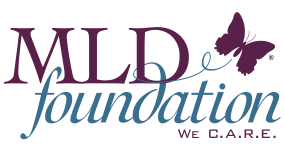2019 is going to be a very interesting and productive year for MLD therapy development. The trials for both gene therapy and enzyme replacement therapy will be expanded and for the first time are headed towards sites in the United States.
We are getting ever closer to
Last December we met and strategized with four pharma/biotech companies who are actively working on MLD therapies. For now, we cannot name one of those companies or talk about what they are working on but we will tell you about the others plus a fifth parter we are also working with. There is
MLD Foundation spends considerable effort working with academic, institutional, and corporate researchers around the globe helping to advance MLD basic research, influence clinical trial design and strategies, and expediting clinical trial development and recruiting. We are equally active and aggressive in diagnostics, including newborn screening, and policy related to regulatory approval, access, and reimbursement (including pricing). Our view certainly starts in the USA, our home country, however, we have a global footprint ad active connections from Australia, through southeast Asia, and across Europe.
TAKEDA (SHIRE) – Enzyme Replacement Therapy (ERT)
The acquisition of Shire by Takeda was completed yesterday (Jan. 8th). Part of Takeda’s interest in Shire was its extensive rare disease portfolio, including its lysosomal disease portfolio where is where the MLD ERT program resides. The company name is now Takeda, but the team working on MLD remains intact and is expanding slightly. Shire will open the next phase of their ERT trial in April with global recruiting of 35 late infantile patients including 10 sites here in the USA.
Orchard Therapeutics – Gene Therapy
Orchard Therapeutics gene therapy program has an active trial underway (also for late infantiles) working to validate the freezing of the genetically modified material for transport to and from the Italian processing facility. This process has been validated previously by another company so it’s likely it will work. Once that is complete we expect Orchard to open global sites for future phases of their clinical trials, including sites in the USA.
Homology Medicines – Gene Therapy
Homology Medicines has been working on MLD for quite some time without much public fanfare. Their gene therapy therapeutic approach is being validated in PKU. MLD was just given the go-ahead by their Board as their lead central nervous system product and will head into IND-enabling* studies. Homology has just moved into a new facility and will be doing their gene editing on site in their new manufacturing facility.
Both Orchard and Homology had initial public offerings in the US last year that are enabling their programs to progress quickly.
And a fifth biotech partner, Armagen, continues their clinical trial on another lysosomal disease alongside pre-clinical basic science work on MLD.
We will be sharing more on each of these programs in the coming days and weeks including how they might affect each of your loved ones and how you can help them move forward.
* NDA – New Drug Application is the formal application for FDA review and approval which leads to widespread availability of a new therapy or drug.
* IND – Investigative New Drug is the terminology used by the FDA as they consider an application for clinical trials in humans.

In response to questions we have received …
All of these therapies are in development and are targeting pre-symptomatic or perhaps in some cases early symptomatic patients. The current clinical trials are focused on late infantiles because the study and validation process is much quicker in that form of the disease.
As we progress to towards MLD Newborn Screening we are quite aware that we need strategies for juvenile and adult patients. We have been in active discussion with our biotech partners about these target groups … and we are getting some traction!
Unfortunately, none of the therapies are designed to repair existing damage, so it is unlikely they will be appropriate for those with notable progression – which unfortunately is all of us here on the MLD Family Discussion List™. There is no notable therapy, MLD-specific or otherwise, that we know of that will repair the damage from myelin loss.
We will be sharing detailed inclusion criteria for each of the clinical trials as we get closer to the opening of the next phases of enrollment.
Dean